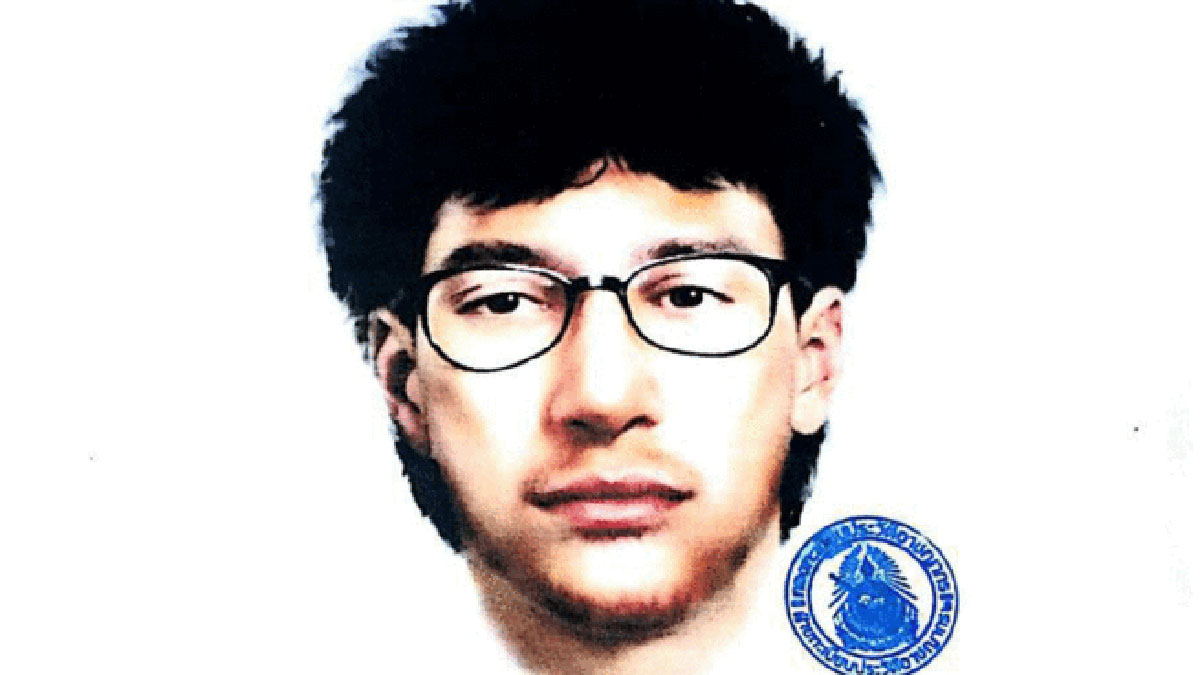Bangkok bomb: what we know about the suspected attackers
Thailand has issued an arrest warrant for an unnamed foreign man in connection with the deadly bombing

A free daily email with the biggest news stories of the day – and the best features from TheWeek.com
You are now subscribed
Your newsletter sign-up was successful
Police in Thailand have said Monday's bomb in Bangkok was unlikely to be the work of an international terrorist group – despite issuing an arrest warrant for an "unnamed foreigner" in connection with the attack.
The bomb detonated close to the capital's popular Erawan shrine, killing 20 people and injuring dozens more.
Yesterday, the Bangkok's Southern Criminal Court issued an arrest warrant for a foreign man accused of conspiracy to commit premeditated murder and weapons offences.
The Week
Escape your echo chamber. Get the facts behind the news, plus analysis from multiple perspectives.

Sign up for The Week's Free Newsletters
From our morning news briefing to a weekly Good News Newsletter, get the best of The Week delivered directly to your inbox.
From our morning news briefing to a weekly Good News Newsletter, get the best of The Week delivered directly to your inbox.
"Hopefully, he is still in Thailand," said police spokesman Lieutenant General Prawut Thawornsiri. A one million baht (£18,000) reward has been offered in exchange for information leading to his capture.
It comes after police released grainy CCTV footage showing the suspect in a yellow T-shirt leaving a backpack at the shrine moments before the bomb detonated.

What do we know about the suspect?
Police have released a detailed sketch provided by a motorbike taxi driver who drove him away from the Hindu shrine on Monday. It shows a young, fair-skinned man wearing a yellow T-shirt, black-framed glasses, with light stubble and thick, medium-length black hair. Police have described him as "Caucasian, Arab or mixed race", about 20 to 30 years old and 5ft 7in tall. However, they also raised the possibility that he was Thai and "in a disguise and wearing a fake nose". The taxi driver said the man had spoken on the phone in a language that was not Thai or English.
A free daily email with the biggest news stories of the day – and the best features from TheWeek.com
How many others were involved?
Two other men seen on CCTV, one dressed in red and one in white, were being treated as accomplices. However, the two men have reportedly handed themselves in to the authorities, insisting they are tour guides. Police say there was likely to be a "big network" of at least ten people involved. It may have been planned at least a month ahead and likely included bomb makers, bombers and an escape team, they claimed. "But the comments appeared to be speculative, not based on firm evidence," says the Washington Post.
Which group could be behind the attack?
So far, no one has claimed responsibility for the bombing. Prime Minister Prayut Chan-ocha initially said the main suspect was thought to belong to an "anti-government group based in Thailand's northeast", a stronghold for the Red Shirt movement. However, officials later said his words had been misinterpreted. Jatuporn Prompan, leader of the Red Shirts movement, has denied any involvement in the attack, telling Sky News that his party would have nothing to gain from carrying out such an atrocity.
Thai authorities have said the bombing does not carry the usual hallmarks of an attack by Islamist separatists, a conflict which has so far been limited to the south of the country.
Pavin Chachavalpongpun, an associate professor at Kyoto University's Center for Southeast Asian Studies, says the bombing does not fit in with domestic tactics, arguing that the location of the attack could provide vital clues. "Thai culture is Buddhist and values religious tolerance," he writes for the BBC. "Such a religious location is not the kind of target any Thai rebel would choose."
However, Thai authorities have appeared to rule out international terror groups such as Islamic State, Al-Qaeda, or the south-east Asian Jemaah Islamiyah. Such organisations typically claim responsibility soon after an attack, and a Thai military spokesman said: "Security agencies have collaborated with intelligence agencies from allied countries and have come to the same preliminary conclusion that the incident is unlikely to be linked to international terrorism."
Professor Lee Jones, a senior lecturer in International Politics at Queen Mary University of London, points out in The Conversation, the attack could be entirely unrelated to the "usual suspects". Instead, it could be the work of a small group with a specific grievance – "possibly related to Thailand’s treatment of Myanmar or Chinese Muslims, for example".